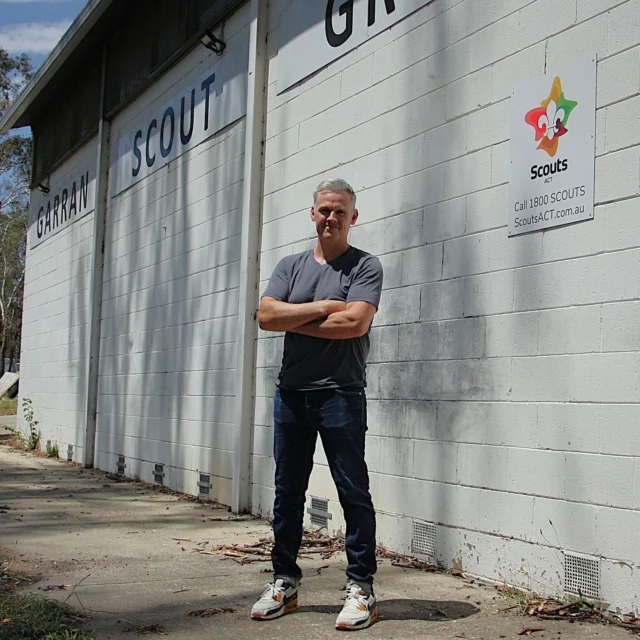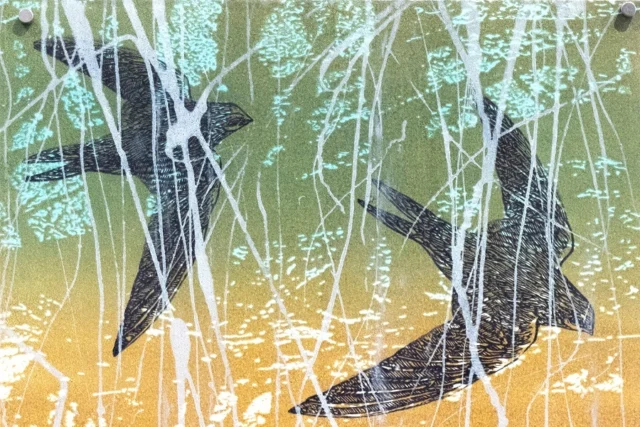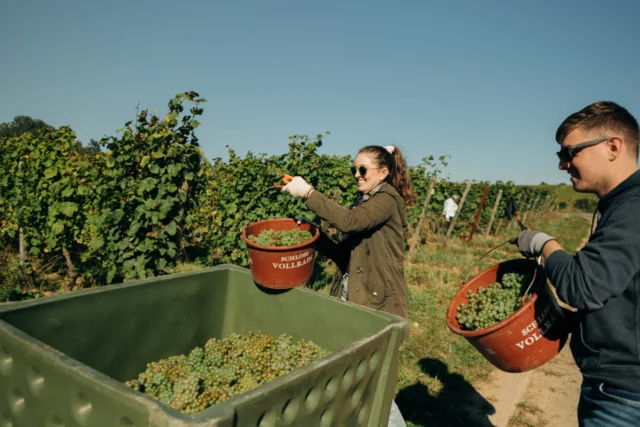“What happens when you give one mob 20 years on the trot? You get what we have now: an arrogant government that knows it has the election in the bag,” says letter writer JOHN QUINN, of Spence.
Where in the world of current democracies would you find a government that has been in power continuously for 20 years? Nowhere.

Most thinking democracies give one mob a couple of terms and then give them the boot at election time and give the other mob a go.
What happens when you give one mob 20 years on the trot? You get what we have now: an arrogant government that knows it has the election in the bag.
And one that ignores its constituents with a “Bugger you Jack, I’m alright” attitude, sprouts a few promises to lull their supporters into pro-Labor mode and then continues as they have for 20 years.
Any visitor to Canberra’s suburbs would believe he/she is in a third-world country. Paspalum and other weeds are unmown for three months and reach a metre in height. Median strips with weeds growing out of the concrete because we no longer employ the chemical weeder crew. What are we getting for the astronomical rates that this mob have been charging – allegedly to get rid of stamp duty. A tram that is basically 19th century technology!
Labor voters have done this town a serious disservice – retaining a government that serves its own ideological needs rather than the needs of its constituents.
Cato, a Roman senator, concluded every speech with “Carthago delenda est” (Carthage must be destroyed) in an attempt to awaken his fellows to the danger Rome faced from Carthage. Carthage was destroyed. Rome was saved.
I have been a Labor supporter all my life but Blind Freddy can see that further support of this mob is not in the city’s long-term interest.
We should be like Cato and give the rallying call: “Labor must go.”
It’s time to look for fresh blood, different thinking, anything but the present government.
John Quinn, Spence
Why do we keep voting them in?
As a constituent of Brindabella I wrote to our MLAs seeking support for how City Services had planted street trees in my street, then weeks later removed them to appease a couple of residents.
The two Liberals (Parton and Lawder) said they’d write to the Minister Tara Cheyne. Heard nothing from Labor’s Gentleman and Burch. Considering it was an environmental “green” issue, you’d think it might have sparked the pique of newbie Nuttall, and the so-called Environment Minister Vassarotti?
Nothing to say from any of them! Why do we keep voting them in?
Paul Easther, via email
Renewable energy, but not much here
The ACT government takes pride in its green credentials, claiming that the ACT is powered by 100 per cent renewable energy.
However, only a very small percentage of the ACT’s renewable energy is generated within its borders, with the vast bulk of it coming from contracts with solar and wind farms outside its borders, and in the form of offsets for use of non-renewables purchased via its mandatory contribution to national renewable energy targets.
Moreover, the ACT’s renewable energy only comes courtesy of a burgeoning footprint of energy infrastructure in rural and regional areas – solar farms, wind turbines, transmission lines that are out of sight and mind for residents of the ACT, but are disruptive to farmers, agricultural practices and wildlife, a fire risk, and a scar on rural landscapes.
If the ACT government wants genuine renewable energy “street-cred” it must share the industrial infrastructure burden it currently foists on others and embrace more solar farms in its own open spaces, wind turbines on its own hills and more transmission lines snaking through its own valleys. And wear its own local NIMBY backlash!
David Palmer, Cook
Is my age the most interesting thing about me?
Why are people so interested in my age? Younger acquaintances dare not ask, presumably because they fear being shocked by the response, but older ones often enquire, some (perhaps afflicted by memory lapses) more than once.
Is my age the most interesting thing about me?
As an older woman, I am growing used to being addressed in unusual ways. I am called “dear” and “darling” by people I do not know. Sometimes, I am referred to in the first person plural, as in “how are we today?” On a recent bushwalk, as they shot past me, younger people told me how well I was doing.
I simply ignore these moments. Lately, though, I have learned that in addition to being a social curiosity, I am somehow also personally responsible for the housing shortage. Could it, I wonder, have something to do with record levels of population growth?
My generation worries about its legacy. As youngsters, many of us loved starting clubs and organisations, many of us even continue to go to church, and we are aghast at the prospect of these worthwhile entities dying out.
If a younger person shows up, we make the most tremendous fuss over them, thus ensuring they never reappear. Perhaps we should stop worrying and learn to chill a bit more.
There are brighter moments. The American comedian George Burns said if you lived to be a hundred you had it made, as hardly anyone died past that age.
As for me, I am off to read the latest Intergenerational Report, if I can find my spectacles.
Jenny Stewart, Torrens
Covid test kits cost too much
I recently tested positive for covid for the first time and I was outraged at the cost of the test kit, $31.95 for two strips. Some pharmacies charge more.
This is a lot of money for pensioners. They used to be free. I wouldn’t mind paying $10, $15, but considering the virus seems to be rampant in the ACT, there’s a strong case for ACT Health to review the cost of the kits or at least lower it for pensioners.
I wrote to them but I’m not holding my breath for a reply.
I must add that the test kit I bought was faulty and the pharmacist told me they couldn’t take it back. No reason.
Vivien Munoz, via email
Good night and good luck, Sister Keogh
Seventy-eight-year-old Catholic nun Sister Jane Keogh will be sitting in the street outside Parliament House every night parliament sits in February and March.
She will arrive at midnight and remain to greet the parliamentarians with a donation box when they arrive at 9.30am.
Asked why she is going to suffer such cold and deprivation of sleep, she replies: “I need to do something that symbolises the desperation and lack of safety for the Moresby men and their families.”
Sister Keogh is a long-time supporter of the men of Manus Island. When that detention centre was closed, the remaining refugees were sent to Port Moresby. There are now 52 men, with their partners and children, left in PNG, but there is no longer any financial support from the Australian government and they are in a desperate state.
“I am part of hundreds of individual Aussies, pensioners and refugee support groups raising money and providing about $10 a day per person since November 22 to feed and help these people for whom we are the only source of income. We do not know what will happen next. Will someone die?” she says.
“It IS crazy that I might think or hope that my actions will do any good. Labor and the governments of PNG have been given the facts over and over for years. Thousands of letters have been sent, thousands have joined protests and weekly vigils all over Australia. The government isn’t interested. One solo old lady isn’t going to make a scrap of difference.”
Good night and good luck, Sister Keogh!
Patricia Wilkinson, Yarralumla
Warming will bring ‘avalanche’ of extinctions
Does anyone care that global warming is about to cause an avalanche of extinctions?
One-hundred-and-three Australian species are listed as extinct. That number is growing by about two per year and 50,000 Australian species are likely to become extinct due to global warming, 500 of which are local to the ACT.
Australians are among the main drivers of global warming.
Australians caused an average of 17.6 tonnes of CO2-e emissions in 2022-23, double the world average. Australia’s national target is to remain above world average per capita emissions until 2035.
The ACT’s per capita carbon footprint is four times the world average. Scope 3 emissions make up 94 per cent of our carbon footprint. They are not included in our emissions targets.
In 2021 the Commissioner for Sustainability and Environment made 12 recommendations for the ACT Government to address scope 3 emissions.
The government-funded Conservation Council ACT Region has been silent about scope 3 emissions since June 2022, when the government confirmed that it would implement only one of the commissioner’s recommendations, ie “work in partnership with state, territory and national governments to discuss initiatives to reduce scope 3 emissions.”
Australian Conservation Foundation campaigner and ACT Conservation Council board member Peta Bulling expressed concern about the 114 species that were added to Australia’s threatened species list in 2023 (“Threatened species list ‘ballooned’ in 2023”, citynews.com.au, January 22). She expressed no concern about the 50,000 species threatened by global warming.
Leon Arundell, Downer
Julie’s right about cross-border justice
Julie Tongs, CEO of the Winnunga Nimmityjah Aboriginal Health and Community Services, has got it right in relation to the Cross Border Justice Scheme (CBJS) in her opinion piece (CN February 1).
Ms Tongs has delivered a strong argument for the CBJS; on a fiscal, pragmatic and psychological approach to detainees who have outstanding warrants in different jurisdictions.
As far as I can determine, there are very few (if any) cons to Ms Tongs’ proposal (based on precedents set in NT, WA, and SA), particularly when it comes to detainees’ connections with loved ones in the ACT, regardless of their cultural identity.
As we know, the ACT and NSW border is very narrow, with ACT being a small jurisdiction compared to other states and the NT. Over the border, criminal activity occurs; we know that.
For example, if a person living in the ACT commits a criminal offence in the ACT and is convicted and sentenced to a period of imprisonment, they will do their time in the ACT.
However, if that person has an outstanding warrant in NSW; say an offence committed in Queanbeyan, there is a real possibility they will be extradited to NSW upon their release from the Alexander Maconochie Centre. Again, if convicted and sentenced to a period of imprisonment, they could end up anywhere within the state of NSW Corrective Services prisons.
How does this keep relationships going, as well as rehabilitation and the commitment to a human rights prison?
Janine Haskins, Cook
Marr’s work must be seen as ‘pure fiction’
Letter writer Eric Hunter (CN February 1) suggested that fellow correspondent Ian Pilsner should “slip off his rose-tinted glasses and read David Marr’s Killing of Country”.
As Marr is not an historian (he is a journalist and author), his areas of expertise are law, Australian politics, censorship, the media and the arts – therefore “Killing of Country” must be seen as pure fiction.
I suggest Eric takes off his rose-tinted glasses and read some of leading Australian historian Geoffrey Blainey’s books.
He states there was no violence with the first fleet. I have also read other books that state the same. I am sure there was violence, but it happened on both sides, not just white on black.
I have a set of books of snippets of the diaries of the first fleet people for the first five years. There is no mention of the violence and corruption to which Eric refers and, given they are personal diaries written at the time, then they must be seen as accurately representing the period.
Capt Phillip was instructed to make friends with the locals, not get rid of them, and that is what he did. He even took Bennelong to Britain for a trip.
As to Ian “blaming young Australians for their supposed lack of knowledge”. This fact has been brought up a number of times in the news and I have seen some younger people being interviewed on television. Some really do not know the facts, what is going on in the world, and know nothing of our history.
Vi Evans via email
Jury is still out on the renewable grid
Ray Peck (Letters CN, February 8) seizes on an isolated fact about the wholesale price of electricity to argue that rushing into renewables has been a wise move.
The jury is still out on the renewable grid that has been committed. All evidence is that the consumer will bear a huge cost that could have been avoided with an appropriate degree of planning and better scheduling and management of development.
The Australian Energy Market Operator’s recent announcement on lower wholesale electricity prices, which Ray Peck cites, does not even mean that prices to the consumer will fall.
The wholesale cost of electricity only accounts for one third of the cost to the consumer. The other two thirds of the cost depends on factors broadly involving network, supply and retailing, for which the costs are increasing.
The reality is that the consumer will have to keep paying today’s prices for years to come, or more depending on how they pay for the cost of firming.
John L Smith, Farrer
The perfect date for Australia Day
Columnist Robert Macklin’s comprehensive analysis “We are not yet a nation that embraces its past” (CN January 31) underlines the intergenerational racism that still blights any sense of national character.
It aligns with the two centuries of intergenerational trauma that pervades the lives of many of today’s First Nations peoples.
Macklin’s suggestion for a republic will help, but the underlying, ingrained historical impacts won’t be eliminated simply through a change of governance.
Our colonial shortcomings are now well documented, but they’ve been sidelined by the legendary “Anzac warrior” culture which dissociates Gallipoli and succeeding conflicts from our “frontier wars”.
Earlier, the indigenous dispossession was excused by early colonial governments and their administrations on the false grounds the country was “empty”, therefore British law respecting indigenous populations wasn’t relevant.
There was only one group of losers; “the troublesome natives” had to be “dispersed” in order to enable uninhibited profits from the booming Merino wool trade.
Yes, “dispersed”; the official euphemism used to cold-bloodedly brush aside the tens of thousands of kidnappings of women and children, the murders and the massacres.
Also ignored was the fact a few settlers negotiated with local native occupants, producing far more peaceful and positive results. But that didn’t suit the vast majority, including the colonial leaders, for whom increasing profits through the rule of the gun and the sword was much more convenient.
I trust Robert’s view of drawing a line under our past by becoming a republic doesn’t mean burying our colonial misdeeds.
Become a republic, yes, but do what the few enlightened settlers did by working to create inclusiveness. We can move forward, but with both the beneficial and the horrific honestly and openly acknowledged. The day that happens would be a perfect date for Australia Day.
Eric Hunter, Cook
Many immigrants helped build this country
Richard Johnston (Letters, CN February 7) may want to reread his history and find that Australia Day was first officially celebrated publicly in 1838 on the 50th anniversary of the settlement.
There were centenary celebrations throughout the continent in 1888 and in 1938, on the 150th anniversary, the day was proclaimed an official holiday.
In the early 1800s the date was celebrated by the colony as Foundation Day, then later was called Anniversary Day, before being known as Australia Day.
His suggestion of May 8 has been suggested before and does not have any significance in our history. His reason that everyone can get together and have a holiday is quite ridiculous as you can already do that on January 26 and it is much warmer weather, great for barbecues and water activities.
Interestingly, Richard claims that May 8 is too close to May 27, ACT’s Reconciliation Day, which is now a public holiday too. It would also be hard to find an alternative date that doesn’t clash with other 20-plus days of the year that are dedicated to Aboriginal commemoration, celebration and mourning.
He fails to mention that it is many of our immigrants that helped build this country that are the ones that are quite happy with January 26 being Australia Day. When the country can accept the sacrifices and hard work of our early settlers, convicts, immigrants and indigenous people as one, then Australia will have finally come of age.
Ian Pilsner, Weston
Who can be trusted?
In a world of spin and confusion, there’s never been a more important time to support independent journalism in Canberra.
If you trust our work online and want to enforce the power of independent voices, I invite you to make a small contribution.
Every dollar of support is invested back into our journalism to help keep citynews.com.au strong and free.
Thank you,
Ian Meikle, editor









Leave a Reply